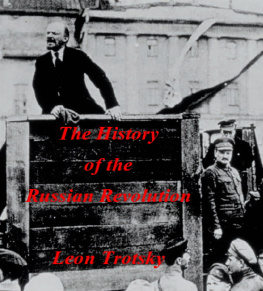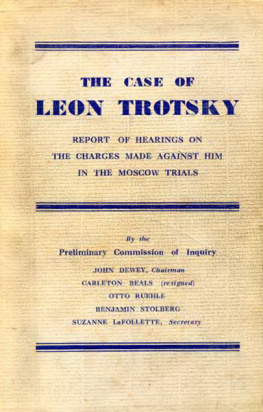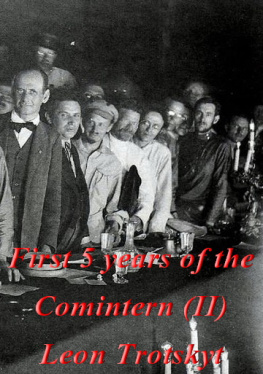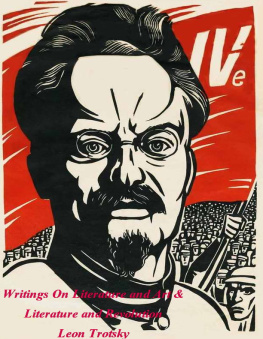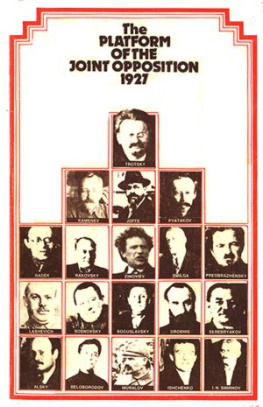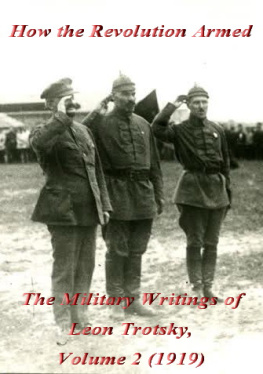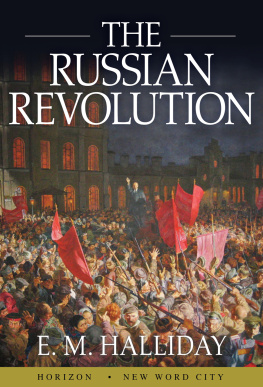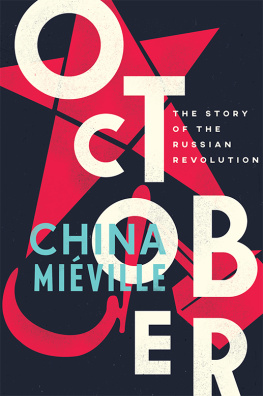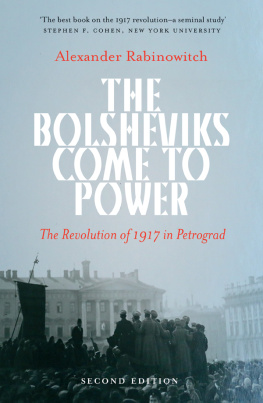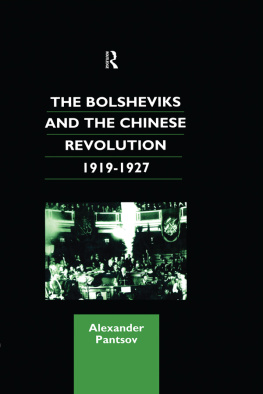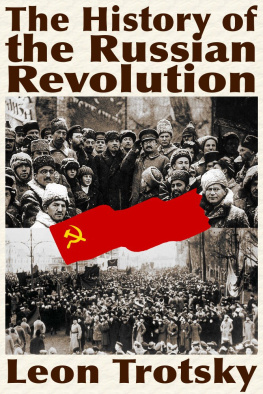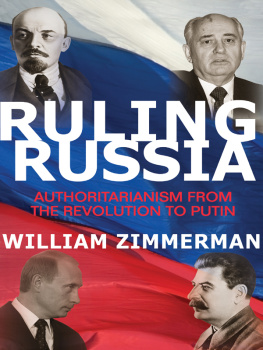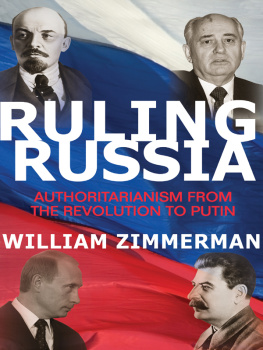The History of the Russian Revolution
Volume One: The Overthrow of Tzarism
Appendix I
(To the Chapter Peculiarities of Russias Development)
T he question of the peculiarities of Russias historic development, and, bound up therewith, the question of its future destinies, lay at the bottom of all the debates and groupings of the Russian intelligentsia throughout almost the whole of the nineteenth century. Slavophilism and westernism resolved this question in opposite ways but with similar dogmatism. They were replaced by the theories of the Narodniks and Marxism. Before the Narodnik theory conclusively faded out under the influence of bourgeois liberalism, it long and stubbornly defended the idea of a completely unique course of development for Russia, a detour around capitalism. In this sense the Narodniks continued the Slavophile tradition, purging it however of monarchist-churchly-Pan-Slavic elements, and giving it a revolutionary-democratic character.
In the essence of the matter the Slavophile conception, with all its reactionary fantasticness, and also Narodnikism, with all its democratic illusions, were by no means mere speculations, but rested upon indubitable and moreover deep peculiarities of Russias development, understood one-sidedly however and incorrectly evaluated. In its struggle with Narodnikism, Russian Marxism, demonstrating the identity of the laws of development for all countries, not infrequently fell into a dogmatic mechanisation discovering a tendency to pour out the baby with the bath. This tendency is revealed especially sharply in many of the works of the well-known Professor Pokrovsky.
In 1922 Pokrovsky came down upon the historic conception of the author which lies at the basis of the theory of Permanent Revolution, We consider it useful, at least for readers interesting them selves not only in the dramatic course of events but also in revolutionary doctrine, to adduce here the more essential excerpts from our answers to Professor Pokrovsky published in two issues of the central organ of the Bolshevik Party, Pravda, July 1 and 2,1922:
Concerning the Peculiarities of Russias Historic Development
Pokrovsky has published an article dedicated to my book: 1905, which demonstrates negatively, alas! what a complex matter it is to apply methods of historic materialism to living human history, and what a rubber-stamp affair is often made out of history even by such deeply erudite people as Pokrovsky. The book which Pokrovsky criticises was directly called out by a desire to establish historically and justify theoretically the slogan of the conquest of power by the proletariat, as against the slogan of a bourgeois democratic republic, and also that of a democratic government of the proletariat and the peasantry ... This line of thought produced a very great theoretic indignation on the part of no small number of Marxists, indeed an overwhelming majority of them. Those who expressed this indignation were not only Mensheviks, but also Kamenev and Rozhkov (a Bolshevik-historian). Their point of view in broad outlines was as follows: The political rule of the bourgeoisie must precede the political rule of the proletariat; the bourgeois democratic republic must be a prolonged historic schooling for the proletariat; the attempt to jump over this stage is adventurism; if the working class in the West has not yet conquered the power, how can the Russian proletariat set itself this task? etc., etc. From the point of view of this pseudo-Marxism, which confines itself to historical mechanisms, formal analogies, converting historic epochs into a logical succession of inflexible social categories (feudalism, capitalism, socialism, autocracy, bourgeois republic, dictatorship of the proletariat) from this point of view the slogan of the conquest of power by the working class in Russia must have seemed a monstrous departure from Marxism. However, a serious empirical evaluation of the social forces as they stood in 1903 05 powerfully suggested the entire viability of a struggle for a conquest of power by the working class. Is this a peculiarity, or is it not? Does it assume profound peculiarities in the whole historical development or does it not? How does it come that such a task arose before the proletariat of Russia that is, the most backward (with Pokrovskys permission) country of Europe?
And in what consists the backwardness of Russia? Merely in the fact that Russia is belatedly repeating the history of the western European countries? But in that case would it be possible to talk of a conquest of power by the Russian proletariat? This conquest, however (we permit ourselves to remember), was actually made. Where lies the essence of all this? In that the indubitable and irrefutable belatedness of Russias development under influence and pressure of the higher culture from the West, results not in a simple repetition of the Western European historic process, but in the creation of profound peculiarities demanding independent study.
This deep uniqueness in our political situation, which led to the victorious October revolution before the beginning of the revolution in Europe, had its roots in the peculiar correlation of forces among the different classes and the state power. When Pokrovsky and Rozhkov quarrelled with the Narodniks or liberals, demonstrating that the organisation and policy of czarism was determined by the economic development and the interests of the possessing classes, they were fundamentally right. But when Pokrovsky tries to repeat this against me, he simply hits the wrong mark.
The result of our belated historic development, in the conditions of the imperialist encirclement, was that our bourgeoisie did not have time to push out czarism before the proletariat had become an independent revolutionary force.
But for Pokrovsky the very question which constitutes for us the central theme of the investigation, does not exist.
Pokrovsky writes: To portray the Moscow Russ of the sixteenth century on a background of general European relations of that time is an extremely afluring enterprise. There is no better way to refute the prejudices prevailing until now even in Marxist circles about the primitiveness of those economic foundations upon which the Russian autocracy arose, And further: To present this autocracy in its real historic connections, as one of the aspects of commercial-capitalist Europe ... that is an undertaking not only of extraordinary interest to the historian, but also of extraordinary educational importance for the reading public: there is no more radical way of putting an end to the legend of peculiarities of the Russian historic process. Pokrovsky as we see, flatly denies the primitiveness and backwardness of our economic development, and therewith relegates the peculiarities of the Russian historic process to the sphere of legend. And the whole trouble is that Pokrovsky is completely hypnotised by the comparatively broad development of trade noticed by him and also by Rozhkov in sixteenth century Russia. It is hard to understand how Pokrovsky could make such a mistake. You might indeed imagine that trade is the basis of economic life and its infallible measuring rod. The German economist Karl Bucher twenty years ago tried to find in trade (the path between the producer and the consumer) a criterion of the whole economic development. Struve, of course, hastened to transport this discovery into the Russian economic science. At that time the theory of Bcher met a perfectly natural opposition from the Marxists. We find the criteria of economic development in production in technique and the social organisation of labour and the path followed by the product from the producer to the consumer we regard as a secondary phenomenon, whose roots are to be found in that same production.

